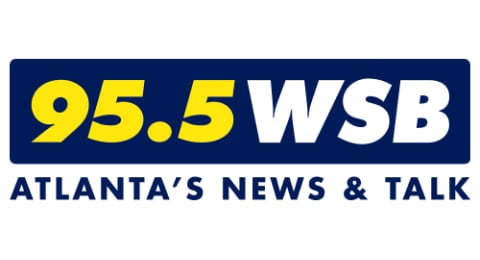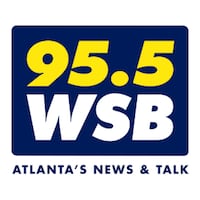Atlanta’s complex commuter-verse requires multiple transportation methods to operate functionally. MARTA is a major column in this mansion, though its aesthetics and structure leave plenty to be desired. Findings from a recent audit of the money MARTA raised from a 2016 half-penny Atlanta sales tax hike are drawing rightful attention to apparent waste and dysfunction.
Anyone that believes that MARTA is vital should start acting so. That starts with the agency itself.
Sara Gregory, The Atlanta-Journal Constitution’s new transportation reporter, wrote a thorough rundown of what auditing firm Mauldin and Jenkins found. The damning report showed that MARTA has basically overcharged City of Atlanta taxpayers by $70 million. MARTA and some other state and local politicians have disputed the findings, though MARTA previously admitted to $9.9 million overcharge that it will repay. They say Mauldin and Jenkins used an improper calculator and that they gave the agency very little time to dispute the results before publishing them.
Concerns with MARTA have risen in recent years, as the Atlanta City Council has challenged the agency’s stewardship of the windfall of sales tax money. Some have contended that the percentage spent on current operations is far too high, leaving inadequate funds to work on the future advancements promised to voters.
The AJC’s Bill Torpy, in a recent editorial on this issue, detailed how far down the 2016 project list that voters saw has winnowed.
The “More MARTA” sales tax, which launched in 2017, is supposed to raise around $2.7 billion over 40 years to fund MARTA expansion.
Torpy points out that the 2016 pitch to voters contained 73 potential MARTA projects, a list that now stands at 17. Only nine are in the more imminent “Tier 1.”
Hundreds of millions of dollars have flowed to MARTA’s coffers, while the projects have not materialized. Light rail projects in lower-income neighborhoods, such as Southwest Atlanta’s Campbellton Road, have become the more cost-friendly Bus Rapid Transit (BRT). BRT has allotted lanes for buses, which should make them run faster than passing traffic. But BRTs have neither the speed or the glam of light rail and the downgrade upset some city stakeholders.
Between downgrading and subtracting - and then potentially overcharging the city - Atlantans are not seeing the return on investment for the hike in taxes. Nearly eight years after the vote, any expansion still seems far down the line (pun intended). Some bus routes have been added in recent times.
COVID did, however, bring an overall reduction in bus service. COVID also drove down the number of daily MARTA train and bus riders. Demand was not meeting supply and has not returned to 2019 levels, but some riders who desperately need in-city public transit are finding less of it. And they are certainly finding less than they were promised.
I wrote about the slow expansion pace last year and I attended the 2016 pitch by MARTA to voters. The agency has since been buffeted by COVID, a rise in construction and labor expenses, the departure of one CEO and the tragic suicide of his successor, and a rise in crime and homelessness. MARTA cannot control most of these factors.
At the 2016 voter town hall, MARTA touted a modernization of its trains and buses and eventual Wi-Fi-readiness on both. Even the Wi-Fi barely works in 2024.
And there is that pesky shrinking and changing project list.
Momo and I are starting to manage with one vehicle and are looking more closely at what we can gain by riding from the Chamblee MARTA Station next door to us. Though many people chuckle at MARTA or use it less than once per year, for many reasons, count us among those that want and need it to work and expand. We are two people among throngs of others.
Commuters need to take MARTA and all public transit more seriously. Some argue that it is important, but then fight its expansion and barely use it. Those that depend on MARTA need to be better stewards of the inexpensive service and be polite and clean.
MARTA, who cannot account for the discrepancy between their findings and those of the auditors, has to step up and match their message. Being taken seriously requires being more serious. Crime fighting, cleanliness, and amenities are smaller ways the agency can show its commitment to growing and staying relevant.
MARTA, at very least, could get the doggone internet to work.
Whether a traveler, a lawmaker, a transit employee, or a MARTA decision maker themselves - if anyone wants MARTA to work and to expand, if they indeed think it is crucial to this growing metro populace, then they need to act that way.
Doug Turnbull, the PM drive Skycopter anchor for Triple Team Traffic on 95.5 WSB, is the Gridlock Guy. Download the Triple Team Traffic Alerts App to hear reports from the WSB Traffic Team automatically when you drive near trouble spots. Contact him at Doug.Turnbull@cmg.com.

:quality(70)/cloudfront-us-east-1.images.arcpublishing.com/cmg/BZEW7LJFHNB3NJ4B6PZFGCLE3U.jpg)
:quality(70)/cloudfront-us-east-1.images.arcpublishing.com/cmg/MWAMIQDF6NEFFCH3SI4BL62RT4.jpg)
:quality(70)/cloudfront-us-east-1.images.arcpublishing.com/cmg/4R7XM472A5AA7DAJOTHOKA45M4.jpg)
:quality(70)/cloudfront-us-east-1.images.arcpublishing.com/cmg/7P5HRFUL2BCERG4J4RDDXYPEIE.jpg)



